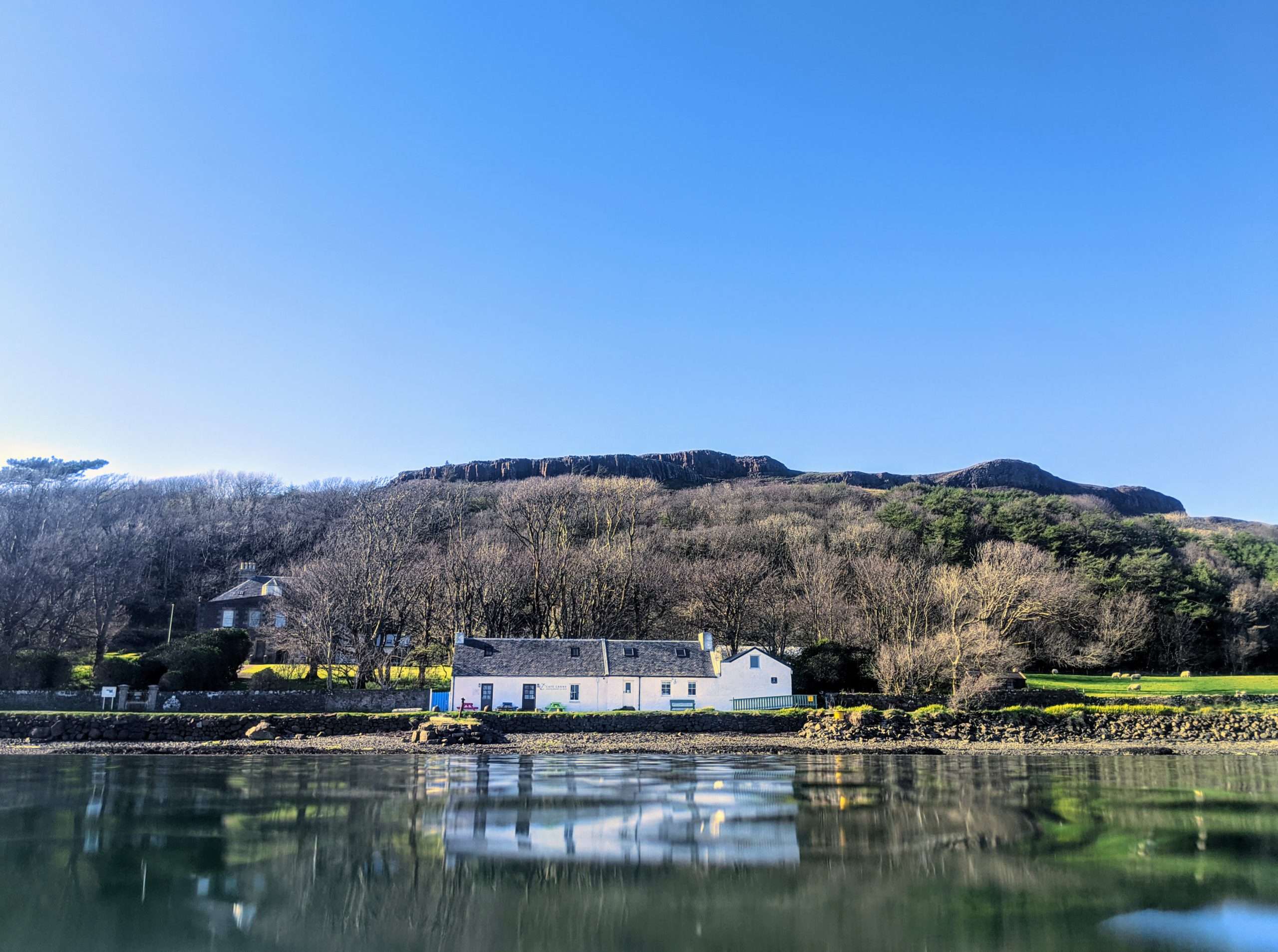Perched on the stunning Scottish island of Canna is a restaurant which has been dubbed the remotest in Britain. Gareth Cole gave up life in London to move to an island measuring just two miles across and with only eighteen permanent residents to develop Café Canna. The business opens again for the season this month and Gareth will use his many skills he has had to learn to make a remote island restaurant work, as Judy Vickers explains.
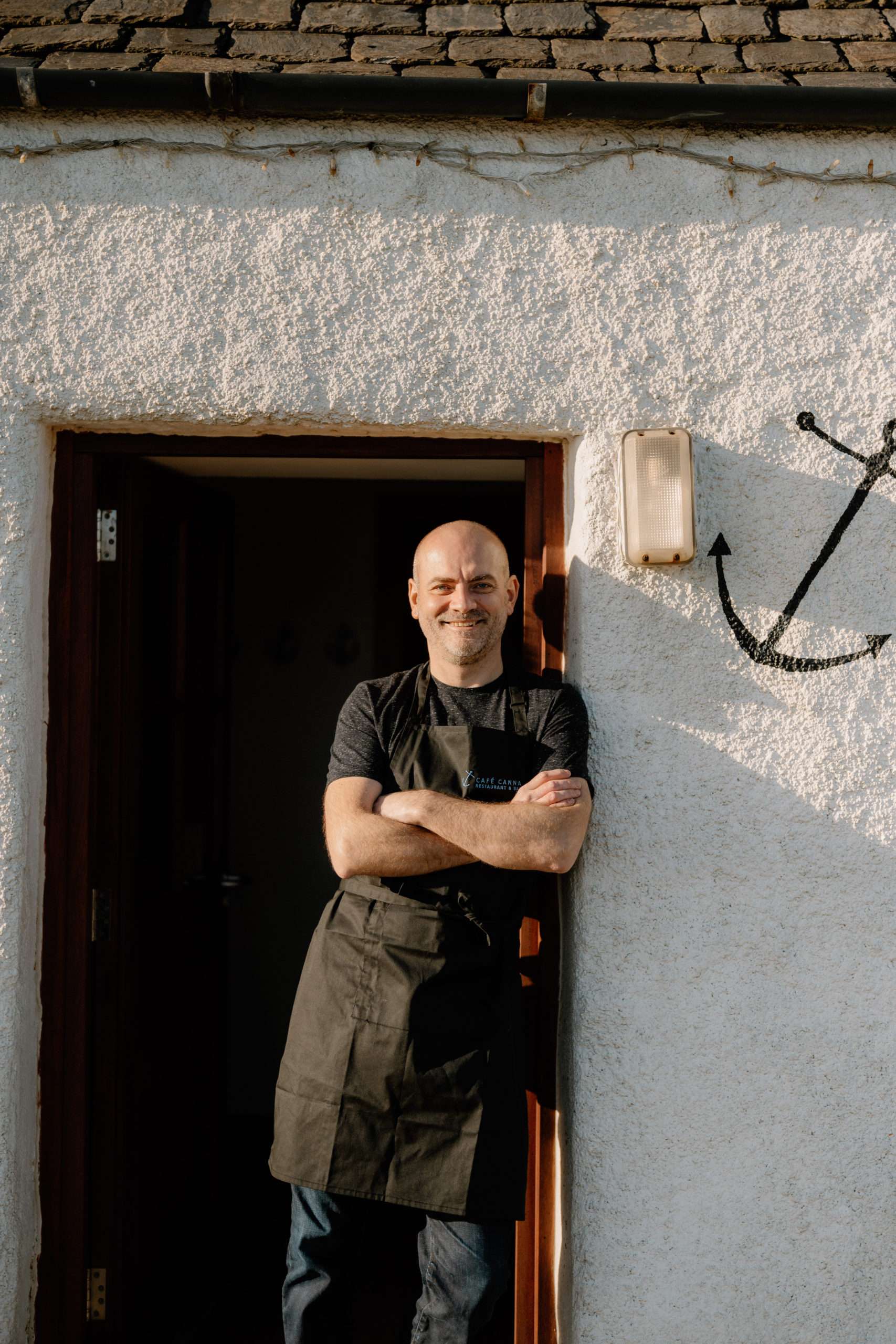
It was one chilly Sunday in early spring when Gareth Cole took a look at the restaurant on Canna with the idea of taking it over. It was pouring with rain, he had no experience as a chef or in the catering trade and the tiny island only has 18 inhabitants as potential diners so it’s perhaps surprising he decided it was a viable business option. “But I’d had all sorts of really bad ideas of how to live and work on the west coast – like almost buying a dilapidated lighthouse – so this was actually quite a good idea,” he says now.
Just a month later, he opened Café Canna’s doors with the simplest of menus (“just fish and chips and the odd lobster”). That was six years ago – now having weathered storms which swept his picnic benches into the bay, frequent power cuts which mean he’s now adept at cooking by candlelight and sometimes erratic boat deliveries, he has brought out a cookbook featuring the recipes he’s created from the ingredients he can source from the island and its seas.
But perhaps more importantly, he is living the dream he had when working as a website developer in London when sailing trips up the west coast of Scotland became his passion. “I was spending more and more time here to the point of wondering if I could live on the west coast and visit London rather than the other way around,” he says.
Remote island
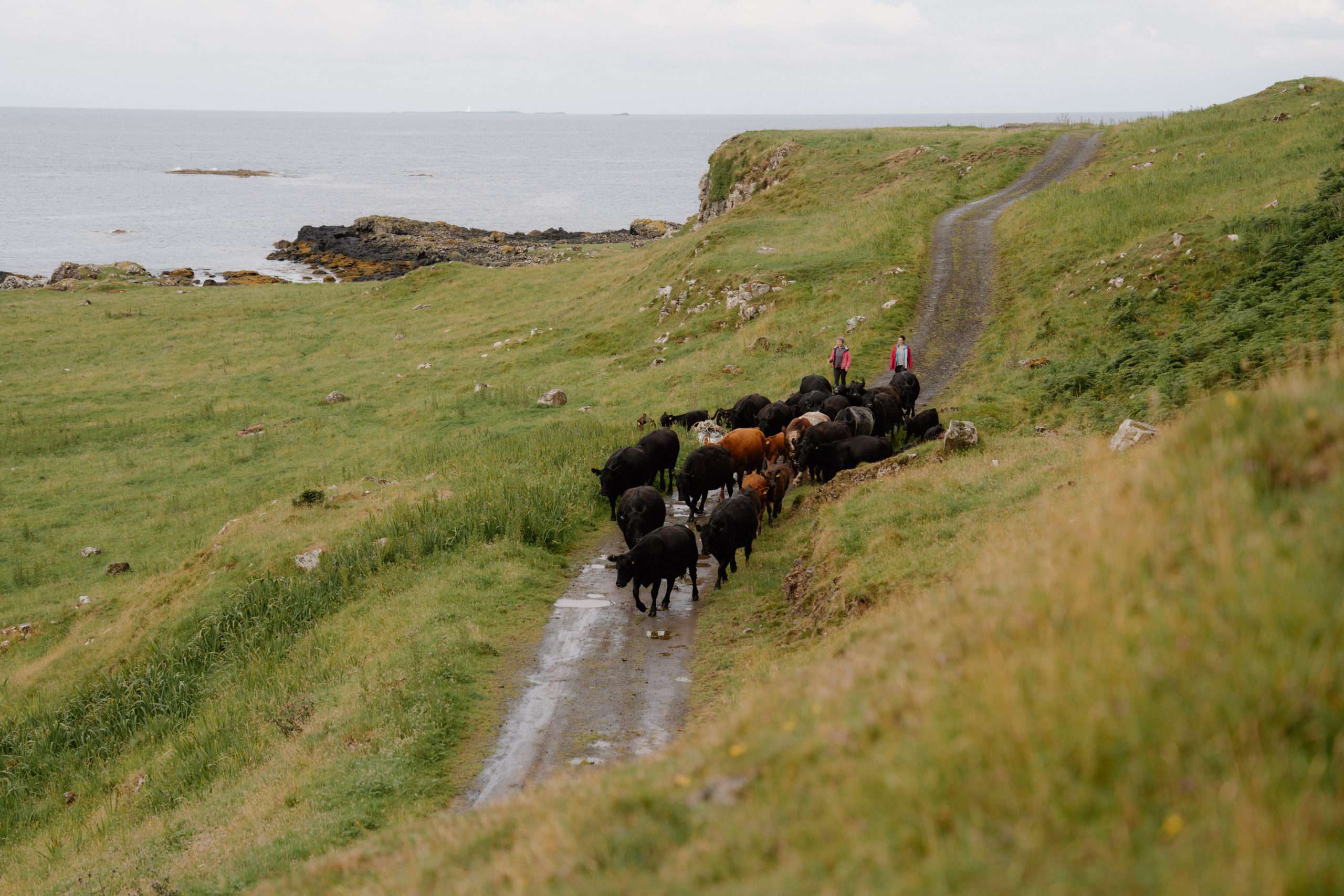
Now his commute to work is a short stroll down a shoreside track that’s virtually carless – only locals are allowed vehicles – with sea eagles soaring overhead and seals playing in the bay to the whitewashed restaurant which looks out over the water.
Canna is a curiously remote island. The most westerly of the Small Isles – the others being Rum, Eigg and Muck – it is reached by a three-hour ferry from Mallaig, a town on the west coast located on the end of the Road to the Isles, itself around a four-hour drive from Glasgow. Yet on summer nights the restaurant is stowed out. The bay has a natural “double” harbour making it one of the most sheltered spots to drop anchor for the yachties who come from far and wide to enjoy the stunning west coast.
“Canna has an amazing anchorage so it’s a popular sailing spot – they radio us on VHS for a table and row ashore for their meal,” says Gareth. It’s not the only quirky feature of this four and a half mile long by one mile wide island. Visitors staying at the only campsite or the handful of self-catering properties can walk up Compass Hill, composed of volcanic rock with such a high iron content that passing ships’ compasses point to it rather than north.
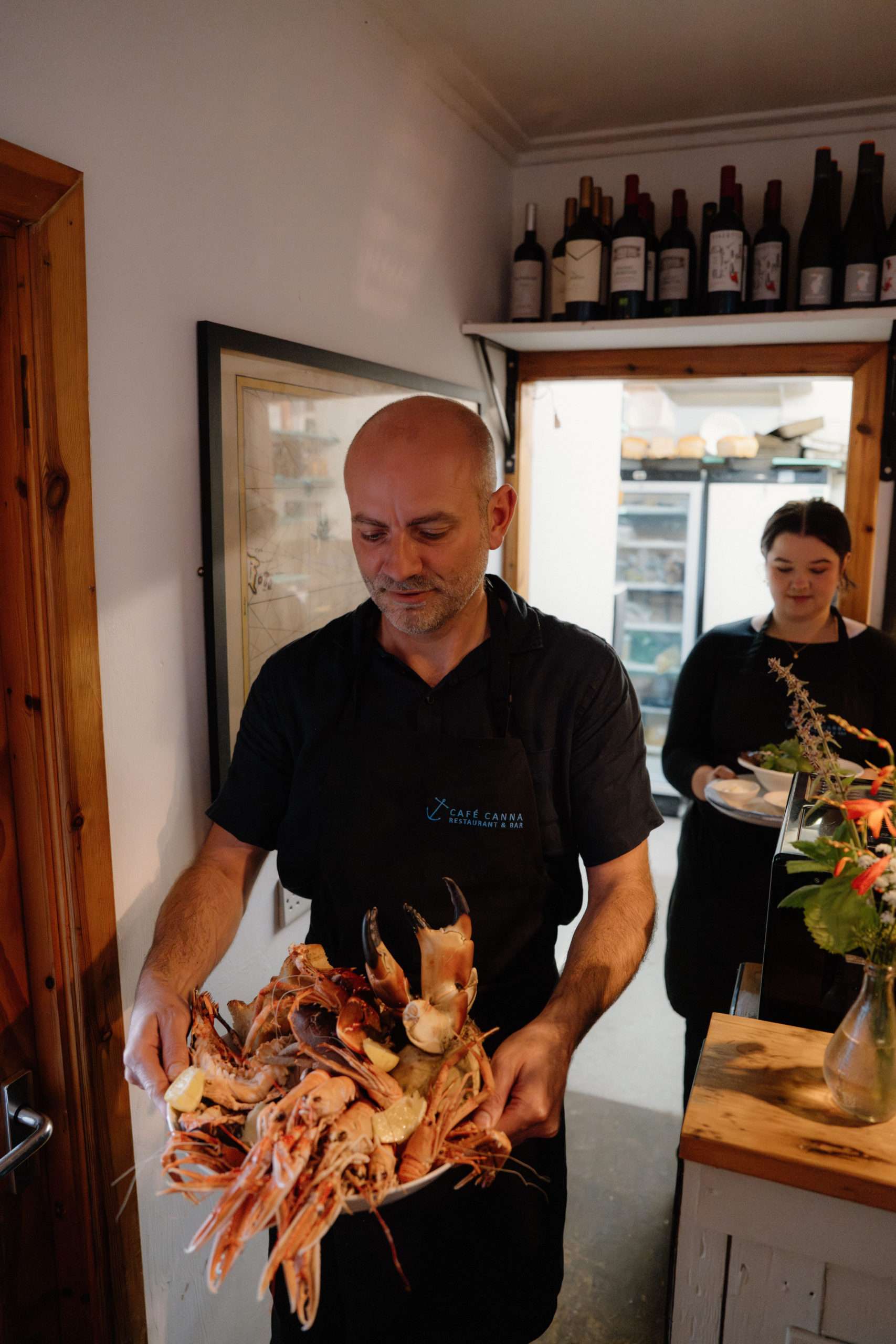
The island is renowned for its wildlife, including puffins, sea eagles, orcas, dolphins and basking sharks, the latter the second biggest fish in the word – 83 were once recorded in a single day off Canna. It is home to the Gaelic archives of John Lorne Campbell, the famous folklorist, Gaelic scholar and “people’s laird”, known as the man who gave away his island – gifting it to the National Trust for Scotland, which still owns it. His extraordinary collection of texts on history, linguistics and folklore are still housed at stone-built mansion Canna House.
The few roads are private so locals don’t pay road tax and the only shop is unmanned – there is an honesty box. Canna is linked to the neighbouring, smaller tidal island of Sanday. There’s not much in the way of mobile phone reception. “And our Wi-Fi is very unstable, in order to take card payments I have to stand on a particular spot on a picnic bench,” says Gareth.
The picnic benches themselves once got washed into the bay – Gareth says the job comes with “inherent calamity” – and he’s become well used to power cuts, adapting his menu so that everything can be cooked on a gas hob by candlelight. “It does happen reasonably often, at least once a month,” he says. “But there’s always stuff going wrong, there are always deliveries that haven’t come, that’s part of the job, to make the best of things.”
Culinary creativity
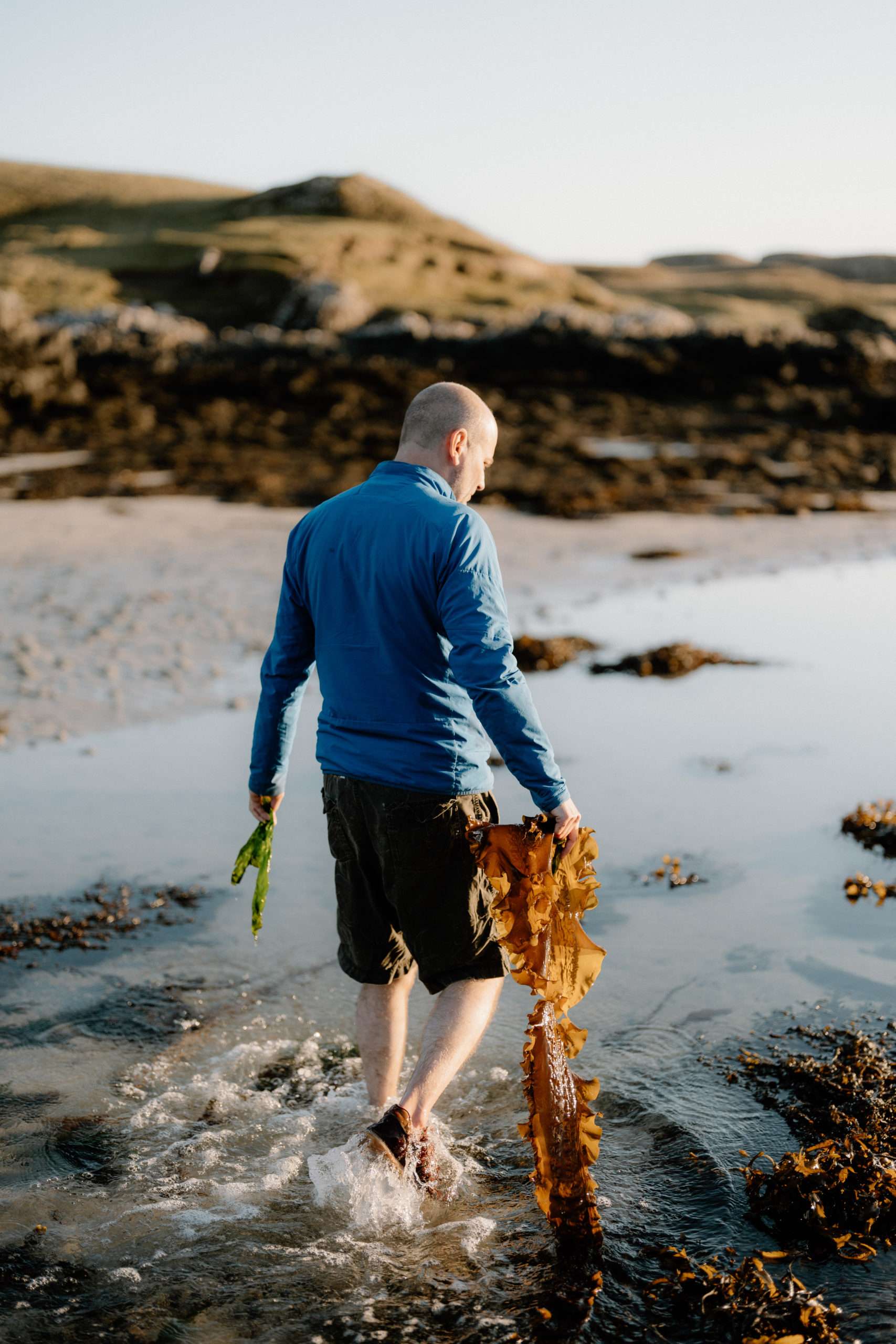
The vagaries of the ferry and deliveries have led Gareth to come up with the culinary creativity that appears in the cookbook. When supplies of beer failed to turn up and the restaurant ran dry, Gareth decided to start brewing his own beer. There were regulatory hoops to jump through in order to get beef from the island’s farm on the menu but now the meat comes from the fields that surround the restaurant. Rabbit is provided by a local and seafood, including lobster, crab and langoustine, from the seas around the island via local fisherman.
The biggest “game changer” was seaweed, foraged from the shore. “I thought it might get a bit of a laugh from the dining room but I didn’t expect this amount of enjoyment. It’s our most popular dish. But then by the time you visit Canna, you have probably visited several places coming up from Glasgow, so you’ve probably got haggis bonbons coming out of your eyeballs so it’s nice to try something different. And we have become a bit more resilient by using these ingredients.”
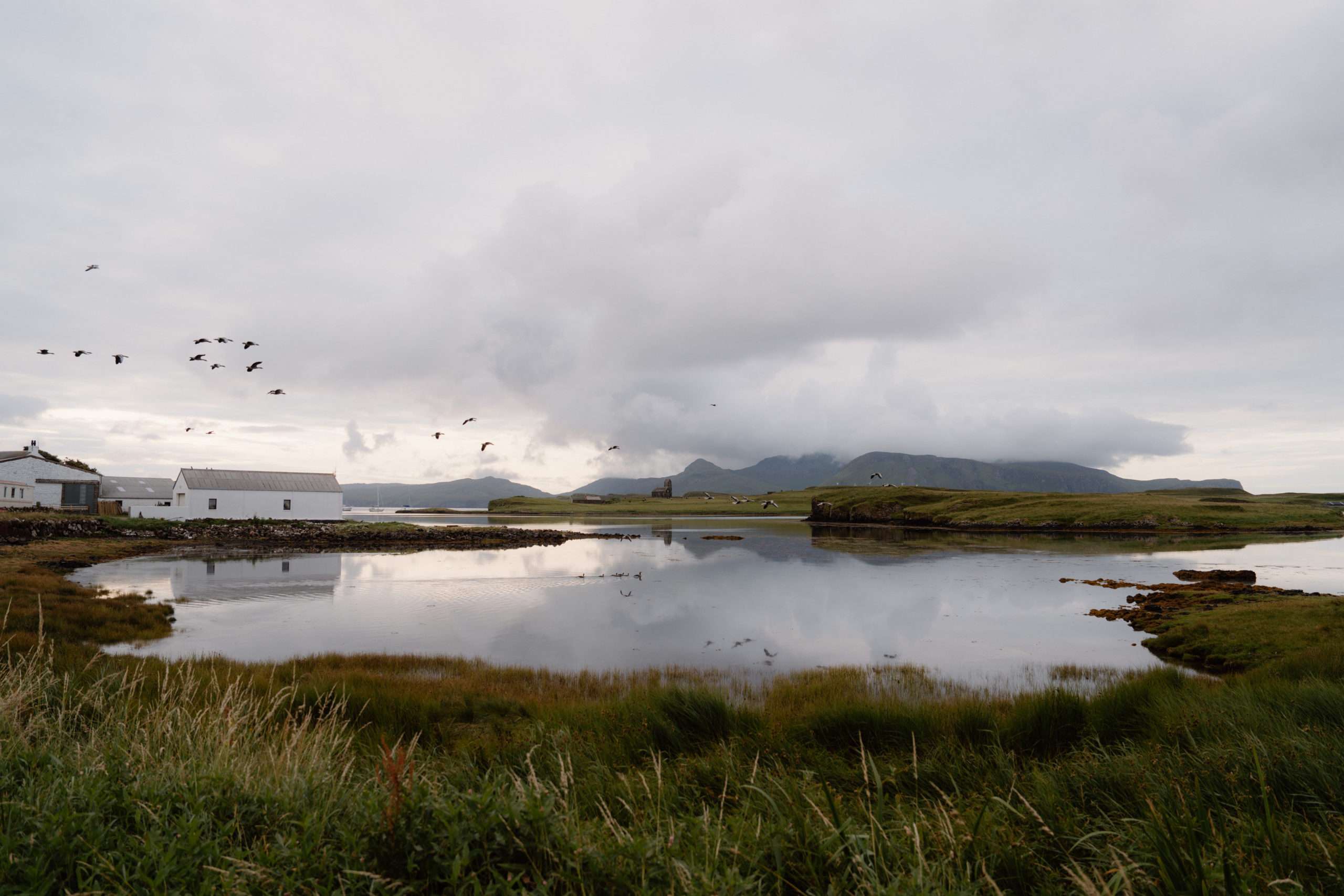
The restaurant opens this month for the season until October. Winter is for “fixing things that have been broken, experimenting with new dishes and time to experience the mainland, the real world – I can’t leave the island from April to October, it’s a full-on season.”
Winter is also a time for a few party nights with the locals, who he says have helped him so much stepping in to help with supplies or staff. “It’s our community space as well as a restaurant,” he says. And on such a small island it’s not just the locals who might have to step up to the mark. “It’s a running joke that anyone who comes to Canna will get a few nights as a dishwasher!”
For more details see: www.cafecanna.co.uk

